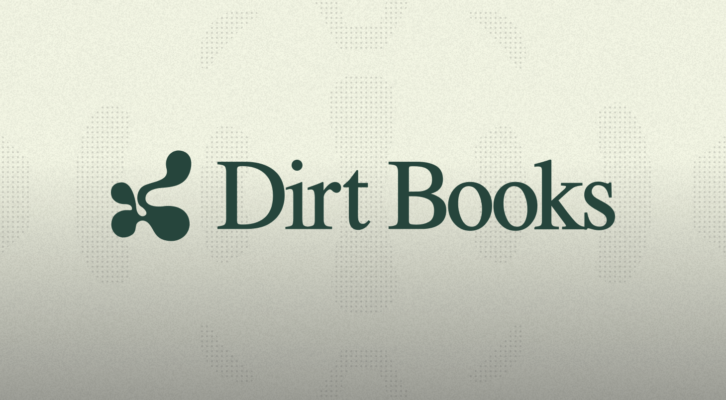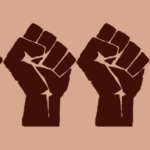I met Yasmin Angoe in Minneapolis for Bouchercon 2022. We hit it off and later became part of a super exclusive group chat entitled, “Real Housewives of Bonnets and Shade.” Kellye Garrett is also a member of the group—maybe the founding member—but that’s another story.
Today’s story is all Yasmin, or just “Yas” if you’re cool and you know her like that. Yas is a first-generation Ghanaian American. Prior to becoming a bestselling, award-winning author, she spent nearly twenty years in education teaching middle and high school students.
Maybe that’s why we’ve become besties (teachers got to stick together!), or maybe it has more to do with how we approach writing. Yas’s debut Her Name is Knight was released in the fall of 2021. Then, less than a year later, she released the second novel in her Nena Knight series, They Come At Knight.
Anytime I find an author churning out such quality books in such a tight timeframe, I just can’t wait to talk shop.
Eli Cranor: Okay, Yas. You’ve been at this for a minute. Give me a recap of your journey. Early days. Query trenches. Agent. The whole come-up story, in a couple sentences. No pressure.
Yasmin Angoe: I’ve been trying to become published for twenty years. This wasn’t my first book that I tried to publish. The first was women’s fiction and I eventually shelved it. I began writing Her Name Is Knight in late 2018 and finished in 2019 so I could query Jan. 2020. I had nearly a hundred rejections before finally signing with my agent in May/June of that year.
We subbed to editors first of Aug. and signed with T&M a week later. A week after that we started getting calls about optioning for a TV show. So that part was cool. It was all very slow and heartbreaking until it all of a sudden happened for me and then it was back to back. I still have whiplash from, you know? And a little trauma because rejections, well, rejections suck.
EC: An overnight sensation after twenty years! Do you write every day?
YAS: Not actual writing every day, but I do work on some aspect of either a current book I’m drafting or another one that’s started marinating in my mind. I may take some notes here and there. Bits and pieces of stories and lines come to me out of nowhere and I’ll often have to stop and type it up real quick on my phone. Or, I may just think about how I should be writing all day long. I do a lot of thinking.
EC: When you are writing, do you aim for a daily word count? If not, how do you gauge your work/know when you’re done?
YAS: I draft in Scrivener because I like to plug in the deadline target date and then try to hit those daily counts (or double daily counts if I didn’t write for a day). I found when I tried to say I’m writing for this amount of time, I tend to watch the clock the entire time and I’m not as productive. When I use Scrivener, I just listen out for the ping when I’ve hit the count and I’m like Yessssss! Then I try to go over the count, so it reduces the count for the next day.
Yes, yes, I play mind games with myself. Only myself though! And maybe the reader.
EC: What are the tools of your trade? Like, do you write using a laptop, a pen, a typewriter?
YAS: Depending on how rushed I am I will use a combination of MacBook and writing long hand. I love writing longhand. Most of Her Name Is Knight was long hand, and then I transcribed it on the computer. But with They Come At Knight, I was under deadline and feeling impostor syndrome, so I had to do more of it on the laptop. My perfect mix is to write long hand using an electronic notebook and convert the text to type and email it to myself. Best of both worlds.
EC: How did you come to the conclusion that this was the best way for you to write?
YAS: Through a lot of trial and error. But what I’ve learned is that if I really want to write in the way that is natural to me (long hand) then I need to work on creating a strict schedule and sticking to it. That’s what I suck the most at.
EC: Speaking of schedules, when do you write?
YAS: Best time for me to write is probably in the morning to early afternoon. That’s when I seem to be most creative, before life has taken its toll on my brain. I may write in the evening until late if I’m on deadline and behind (which seems to be all the time). I’m a work in progress.
EC: Do you have any rituals you return to that get you in the mood to write? You might include any special talismans you have in/around your writing space, or even if there’s a certain drink or food that helps get you in the right headspace.
YAS: Depends on what I’m writing. If I’m writing an intense scene, either an intensely emotional scene or an action one, I’ll listen to some music I’ve curated for that book. I have a playlist for each book, which is the same playlist for every book. I guess I just have a favorite playlist. Yeah, let’s just go with that. I also do not write linearly. I write whatever scene I’m feeling at that time.
EC: Oh, wow. I don’t think I’ve hit on nonlinear writing in one of these talks before. So I’m guessing you don’t outline?
YAS: I’m allergic to outlines. Hard to believe since I am an English teacher. But for my own personal writing I feel detailed outlines and synopses stifle my creative flow. I got to write it right off the top of my dome and see how it all shakes out.
EC: So, I’m guessing this leads to some pretty extensive revisions? What does that process look like?
YAS: I let the draft sit for a while, and I try to veg out on nothing so I can tackle revisions with a fresh take. I don’t let it sit for very long though because I typically have a quick turnaround for my publisher. I do have two critical partners that I let read all my work if they have time. They write in romance and horror, and I like that they do because if my thriller can hook a romance writer—then I know it’s gold! I don’t do many revisions before sending it off to my agent or editor because I don’t want to put in too much work and then the editor comes in and says we need to change all of this. Then it’s like doing double work for me. Luckily, she’s never done that though.
You didn’t ask, but I am an over-writer. I like to write over the word count so that all we really have to do is cut and clean. I would hate to turn in something at word count or below and have to go back and beef stuff up. No thank you!
EC: Do you read certain books for inspiration prior to writing? If so, what are they? Do they change from manuscript to manuscript?
YAS: I read all the time and but what I’m reading is just what I’m feeling like in that moment. One book that inspires me all the time is Stephen King’s On Writing, which I know everyone says. Honestly, any book of his I read inspires me and makes me want to create a story at his level. But no, I don’t specifically read books for inspiration, just for enjoyment.
EC: Best advice for writers just starting out, especially when it comes to the actual act of writing/developing the habits necessary to craft a novel-length manuscript.
YAS: To do just that, develop the habits necessary to craft your novel. Treat your writing like you would your job. Don’t be late. Don’t bullshit. Take your fifteen-minute breaks and lunch. Tackle your day with an established game plan and stick to it. But most of all, protect your space and time. Now if only I could follow that advice for myself…
EC: Finally, why do you write?
YAS: I write because it keeps me sane and someone other people want to be around. If I don’t write for too long, I feel edgy and feel off balance. Most of all I write because I just want to share all these stories I have in my head and help make readers jump into new worlds and out of their own for a few hours, a feeling that really makes a difference for me as a reader.

















